#mary renault
Text


‘You must tell me when I say the Persian wrongly. Don’t be afraid to correct me, or I shall never learn.’
I said I had thought he would never love me. I did not beg him to take me with him wherever he was going; I did not think so far. I was like a traveler in the desert,who comes to water.
The persian Boy- Mary Renault
#the persian boy#bagoas#alexander the great#iskander#alexander of macedon#mary renault#the Persian boy fanart
198 notes
·
View notes
Text
All tragedies deal with fated meetings; how else could there be a play? Fate deals its stroke; sorrow is purged, or turned to rejoicing; there is death, or triumph; there has been a meeting, and a change. No one will ever make a tragedy—and that is as well, for one could not bear it—whose grief is that the principals never met.
Mary Renault, The Mask of Apollo
#book quotes#mary renault#mask of Apollo#literature#books and libraries#greek tragedy#greek history#greek myths#ancient greece
161 notes
·
View notes
Text


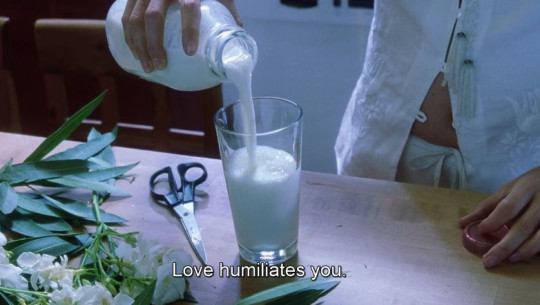






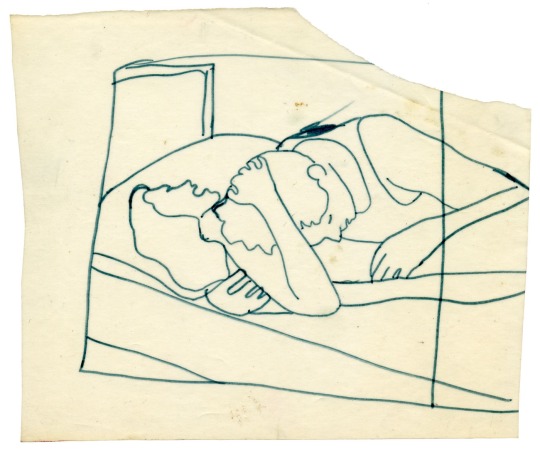


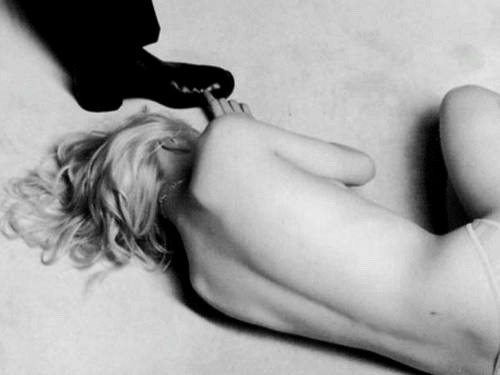




i love you / i fear you / i need you
mary renault, the national, white oleander, maggie nelson, heathers: the musical, margaret atwood, nikita kadan, jenny holzer, margaret atwood, ida aplebroog, simone weil (tr. arthur wills), richard siken, unknown, unknown, angela carter, the sopranos, mary oliver
#web weaving#parallels#comparatives#love#desire#longing#mary renault#the national#white oleander#maggie nelson#heathers the musical#nikita kadan#jenny holzer#ida applebroog#margaret atwood#simone weil#richard siken#the sopranos#angela carter#mary oliver#words
1K notes
·
View notes
Text
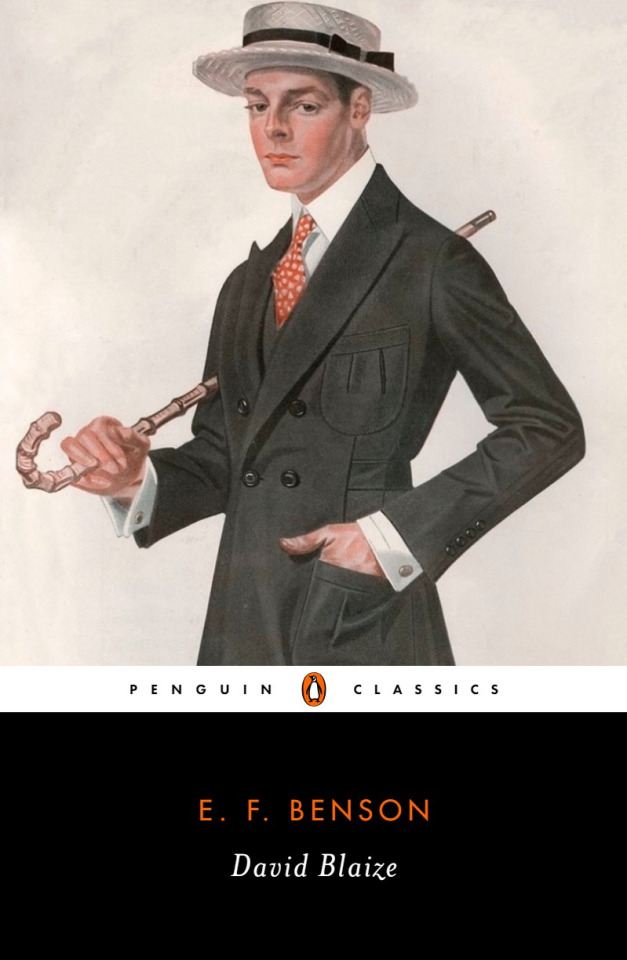



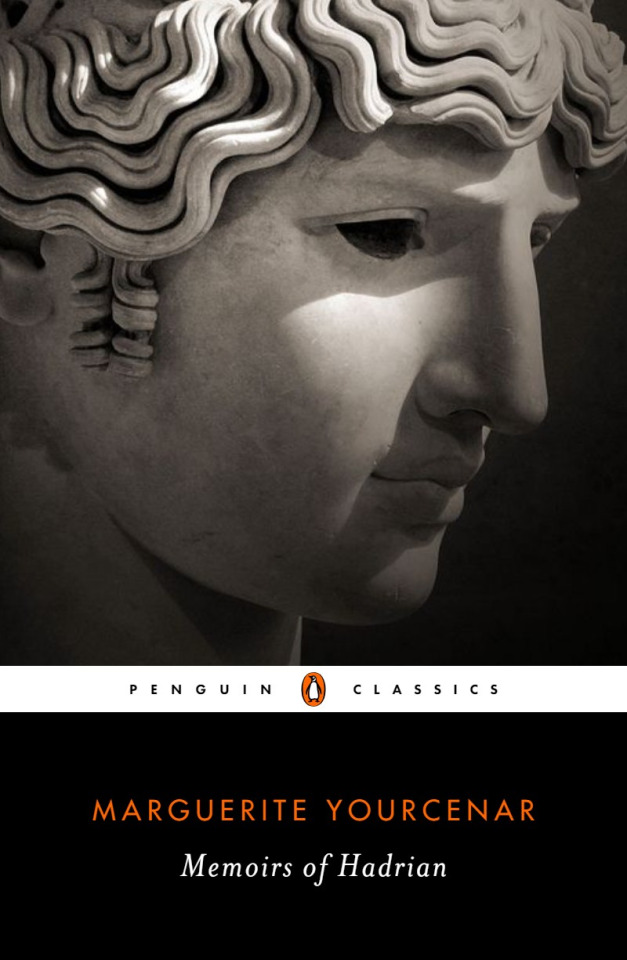
I made Penguin Classics covers for some old gay novels.
(Part 2)
#book covers#penguin classics#penguin covers#david blaize#david of king's#brideshead revisited#the charioteer#memoirs of hadrian#e. f. benson#evelyn waugh#mary renault#marguerite yourcenar#gay literature#lgbt literature#gay#mlm#books#booklr#long live leyendecker!
304 notes
·
View notes
Text
I only make memes about mildly obscure queer fiction written prior to 1970, thanks


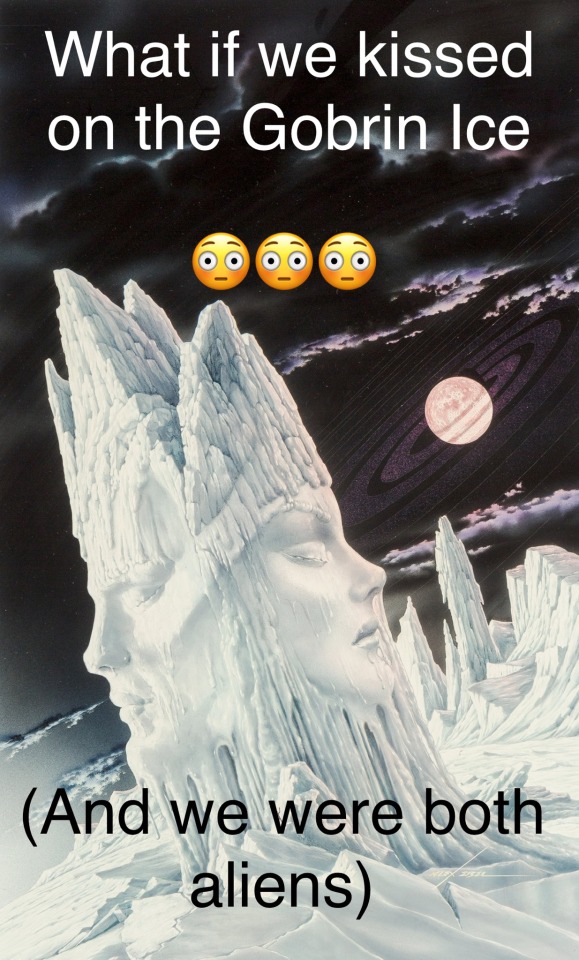


#the charioteer#mary renault#the left hand of darkness#ursula k. le guin#maurice#em forster#the Charioteer is incomprehensible because I don’t speak British
98 notes
·
View notes
Photo

The Rule is that the King must Die
#the king must die#mary renault#phew! i finally finish that book#theseus#minoan#bull#horse#greek mythology#minotaur#well technically it's about minotaur#labrys#pimsriart2022#pimsriart
554 notes
·
View notes
Text
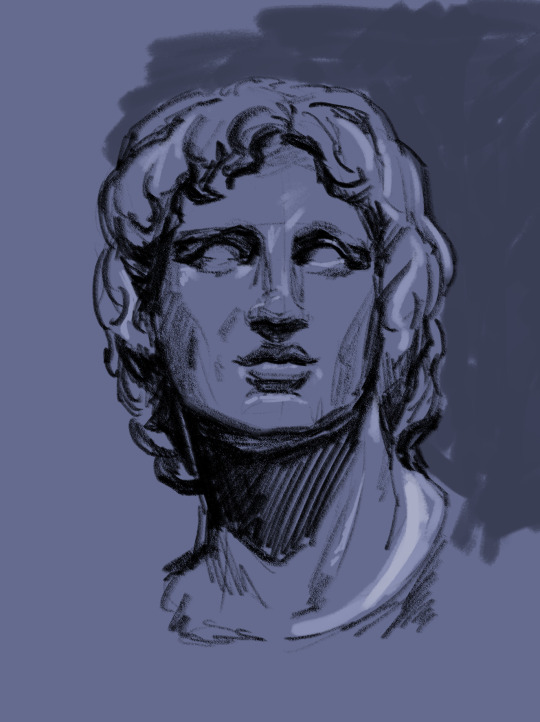
doodling al'skander when i should be sleeping because i have not recovered from the effects of the persian boy
#completely obsessed with the whole lover (hephaistion/macedon) vs beloved (bagoas/persia) dichotomy#and all the implications of that#alexander as courtesan to the macedonian army!!#anyway. started reading funeral games today so just having lots of thoughts at the moment#the persian boy#mary renault#my art#alexander the great
102 notes
·
View notes
Text
Half of what I love about The Charioteer is that it exists at all: it’s a gay love story with a happy romantic ending and it was published in 1953. Well, it was published in the UK in 1953; American publishers wouldn’t touch it until 1959. What’s remarkable about it isn’t that it features queer people—queer characters were already a staple of pulp novels, and several queer classics, such as Gore Vidal’s The City and the Pillar and James Baldwin’s Giovanni’s Room, had been published by the time it came out in America—but that it ends optimistically: two main characters are romantically together.
Queer romantic love lifts some heavy weight in this story: it redeems the trials of being queer in a hostile world, and it makes life in general worth living. There’s a chapter where Laurie, the main character, is at his mother’s wedding to a man who Renault—in a few brisk lines—establishes as insufferable in general and uniquely insufferable to Laurie. When Ralph turns up, Laurie describes him as “a well in the desert.” Laurie’s effectively being orphaned and cast out of his home, and Ralph is someone who is his. The relief is palpable.
In a straight novel, weddings often serve as a reminder of what’s to come for its main character (whether it’s a promise or a threat depends on the genre) but here the wedding situates Laurie as an outsider: he’ll never have this. But what he does have is Ralph charming various relations, Ralph helping assemble broken folding chairs, Ralph making sure Laurie eats, and Ralph packing up his childhood bedroom.
He also has Ralph on the floor in front of the fireplace, because in this book, queer love includes sex. It’s not explicit (it is, in fact, implicit: you have to read carefully to notice it’s happening in the first place).
“The sensation of coming home again,” Laurie thinks at one point, “is one of the more stable by-products of physical love.” Renault makes it extremely clear that chaste romantic love is one thing, and that cruising for strangers is another thing (I’d love to say that both are presented as valid. Alas, they are not.), but that this happy ending involves love and sex being intertwined.
164 notes
·
View notes
Text
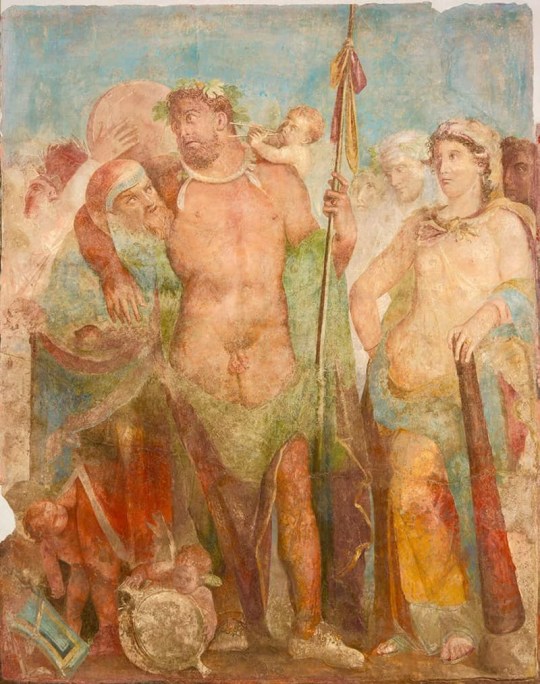
Hercules and Omphale, a Fresco from the House of Marcus Lucretius Fronto, triclinium 16, east wall, Pompeii, c 70 CE.
National Archaeological Museum of Naples :: [Robert Scott Horton]
* * * *
“I left you to make you understand my mystery. Do not believe others will die, not you. It is not for that I'm your friend. By laying myself on the pyre, I became divine. I have wrestled with Thanatos knee to knee, and I know how death is vanquished. Man's immortality is not to live forever, for that wish is born of fear. Each moment free from fear, makes a man immortal.”
― Mary Renault, Fire from Heaven
#Hercules and Omphale#fresco#Naples#Pompeii#Mary Renault#Fire From Heaven#quotes#Hercules#immortality#fear
35 notes
·
View notes
Note
Considering you too are a fan of two very good book series (aftg and trc) do you happen to have any recs?
Hi
Thank you for your trust.
I wouldn't say I have a rec that's in the same vibe as these two but i DO have a book rec, I read this a few weeks ago and it's really really really good, now please welcome on stage
The charioteer, by Mary Renault
It's a queer 1953 novel with everything one needs (hospitalized soldiers, male nurses, pretentious and/or mentally unstable queer friends, poetry books, windy countryside, sailors).
I would make fanart of it if I had free time.
Hopefully someday I will.
Anyway, go read the the book, its's 100% worth it.
#the charioteer#mary renault#book rec#queer literature#if you liked trc specifically i would say chances are you'll like this one#another auburn haired mc in love with the hot blonde one#neil josten it's you i was referencing#sorry for not answering this message earlier btw i'm sure it's been weeks#i read every message but i dont answer it all so thank you to everyone that has ever left a nice comment it always makes my day#if you wanna reach me don't hesitate to dm
28 notes
·
View notes
Text
Ask some poet to describe the awe of Delphi, and some philosopher to explain it. I work with the words of other men. I looked back down the valley, the olives winding and falling mile on mile to a rock-clipped blink of sea. Beyond a vast gulf of air were the highlands of Mount Korax, cloud-patched with sun and gloom; westward the iron cliffs of Kirphis; above us reared Parnassos, more felt than seen. Its head was hidden by its knees, the rock-towers of the Phaidriades, which themselves seemed to gore the sky. Truly, Apollo is the greatest of all chorus-masters. The town, with his temple in the midst, is tiny as a toy in all this vastness; yet all those titan heads stand around that and look towards it. They are the chorus round his altar; if he raised his arm they would sing a dithyramb. I don't know any other deity who could bring off such a show. At Delphi, you don't ask how they know it is the center of the earth.
Mary Renault, The Mask of Apollo
#<3#when we get into the plato stuff it's less my thing my parts of this book are just pure comfort reading#hellenic#apollo#delphi#Mary renault
36 notes
·
View notes
Text
A new article on the life of Mary Renault, with some details about her life that I haven’t seen before!
Some highlights:
“Mary borrowed money from her aunt to attend St. Hugh's College at Oxford, as her father did not believe women needed a university education. Studying history under the tutelage of J.R.R Tolkien, she became interested in the Medieval period. Tolkien encouraged her writing, and during his tutelage, she penned the manuscript of a Medieval fantasy novel. Living on her own for the first time, she could freely express her interests. She decorated her room with Medieval tapestries and took up knife-throwing as a hobby. Mary's mother was dismayed at her decision to pursue an education rather than marry young, and she frequently berated her for being unfeminine and unattractive.”
KNIFE THROWING 🔪🔪🔪😍😍😍
“In 1933, Mary became a nurse so that she could support herself without her parents. A year into her training at Radcliffe Infirmary, she met fellow nurse Julie Mullard. Seven years her junior, Julie had by that point lived a relatively sheltered life, but they found much in common. Julie came from a lower-class background, the illegitimate daughter of a strict and unloving mother. Both women had come to Radcliffe Infirmary to escape their lives. Despite mutual attraction, both were reluctant to make their feelings known. Neither had been in a relationship with a woman before, nor did they know any openly queer women. Julie later remarked that, in the absence of a framework to describe their sexuality, "we thought we had invented it."
They entered into an open relationship, with each of them also dating men before eventually committing to a more monogamous relationship with each other. It was during their early relationship that Mary began working on a manuscript titled "First Love", which developed into her debut novel, Purposes of Love.”
that book makes so much sense now! The protagonists trying to navigate a het relationship following scripts for queer relationships from Ancient Greece, and agonizing over gender roles 🤯🤯🤯
“She explored love between women most prominently in The Friendly Young Ladies (1944). The novel focused on Leo, an uninspired novelist struggling to choose between her relationship with a nurse and a heterosexual marriage. This bisexual love triangle is complicated by Leo’s fluid gender identity as a masculine-presenting person who views herself in both male and female terms. Taking inspiration from Mary’s own life experiences, it was the last of her novels to center love between women in its narrative.”
Someone is finally noticing how every Renault protagonist, regardless of gender, has a ~complicated~ relationship with masculinity 👀👀👀
“Centering her novels on queer men allowed her to elucidate the intimacy and anxieties that she as a woman in a queer relationship, but that choice was more than a simple mask for autobiographical confessions. Mary had always identified strongly with male subjects, from Alexander to the cowboys of her youth. In her male protagonists, she found a mirror for her complex relationship with gender and bisexuality. By and large, women play minimal roles in her historical novels, only assuming power in the narrative after taking on a male role and presenting an outwardly masculine appearance. Axiothea, a lesbian who appears in The Mask of Apollo, is one of the most notable examples of this. Like Leo, her masculinized gender allowed her to "be true to the mind before the body." Gender fluidity is portrayed, through the actor Nikeratos and the eunuch Bagoas, who identifies as a third-sex, neither male nor female. In that way, the fluid identities of characters like Bagoas or Nikeratos mirrored some aspects of her own life. The fluidity of sex and gender in her novels had little precedent in mid-century literature and was not appreciated until decades later.”
103 notes
·
View notes
Text
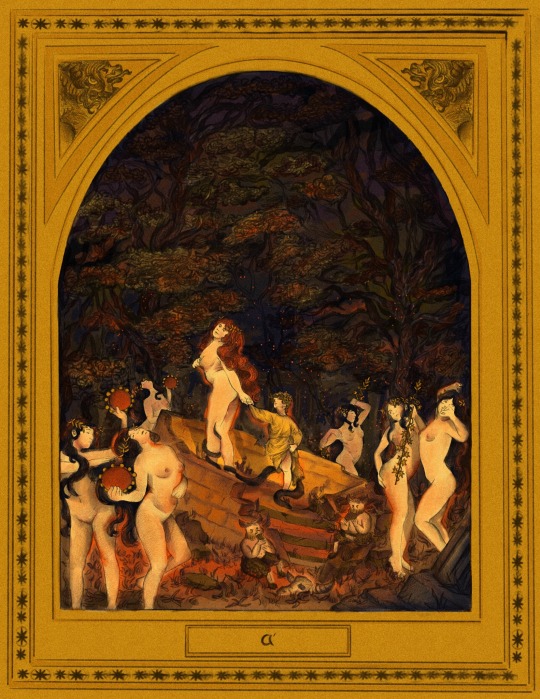
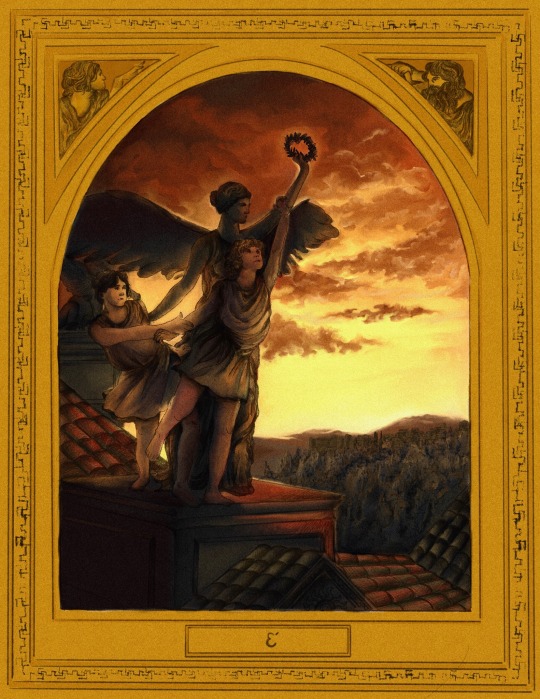

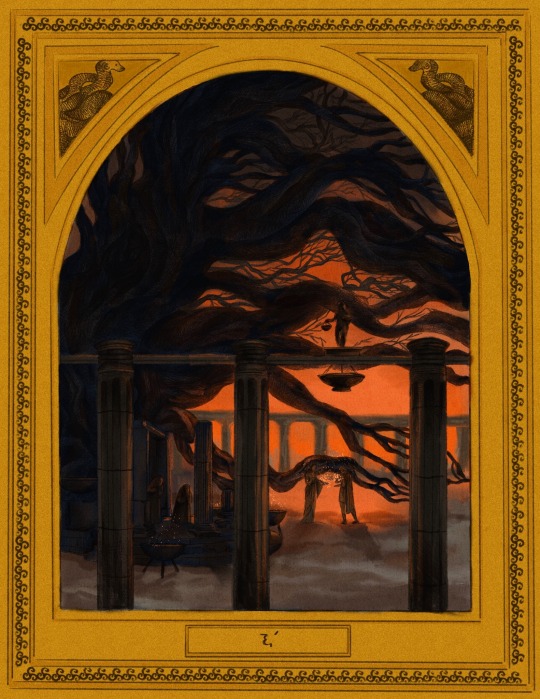
“True friends share everything, except the past before they met.”
― Mary Renault, Fire from Heaven
*Redid my old (not really old, they’re from last year🙄) illustrations on the historical novel “Fire from heaven” which follows a journey of Alexander the Great through childhood to the very end.
#illustration#book illustration#vintage illustration#book art#quotes#vintage#books#ancient greek#ancient art#alexander the great#fire from heaven#adult fiction#historical fiction#hephaistion#ancient aesthetic#fanart#mary renault#macedonia
93 notes
·
View notes
Text
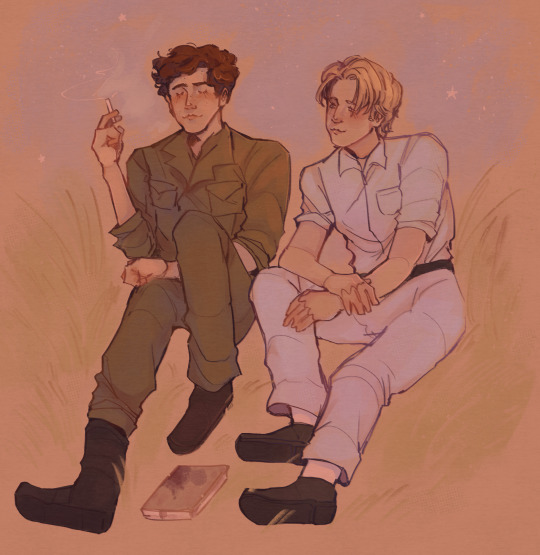
laurie & andrew
#the charioteer#mary renault#laurie odell#andrew raynes#books#literature#queer#lgbt#gay#art#fanart#my art#digital art#illustration
40 notes
·
View notes
Text
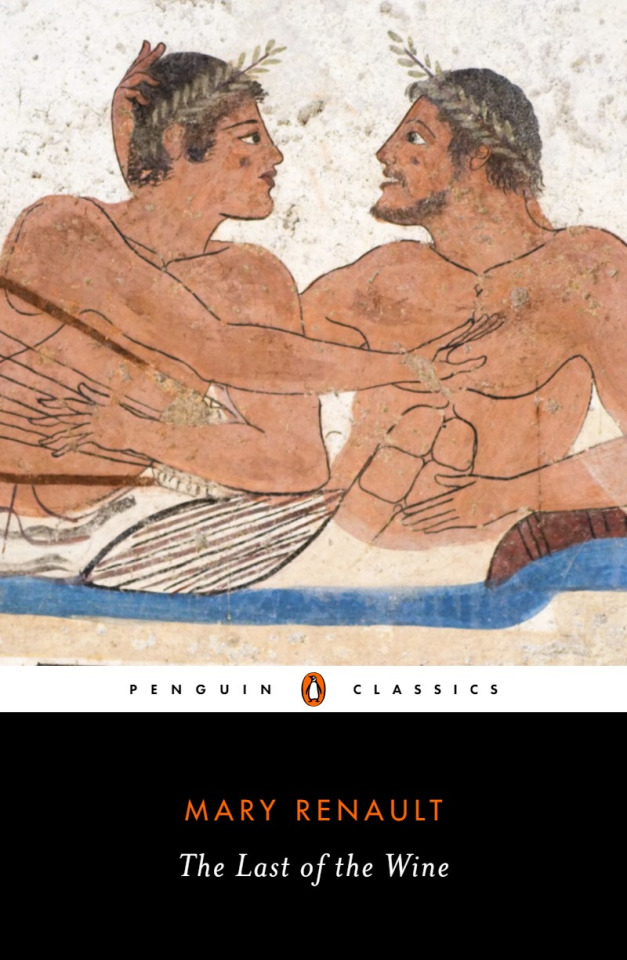

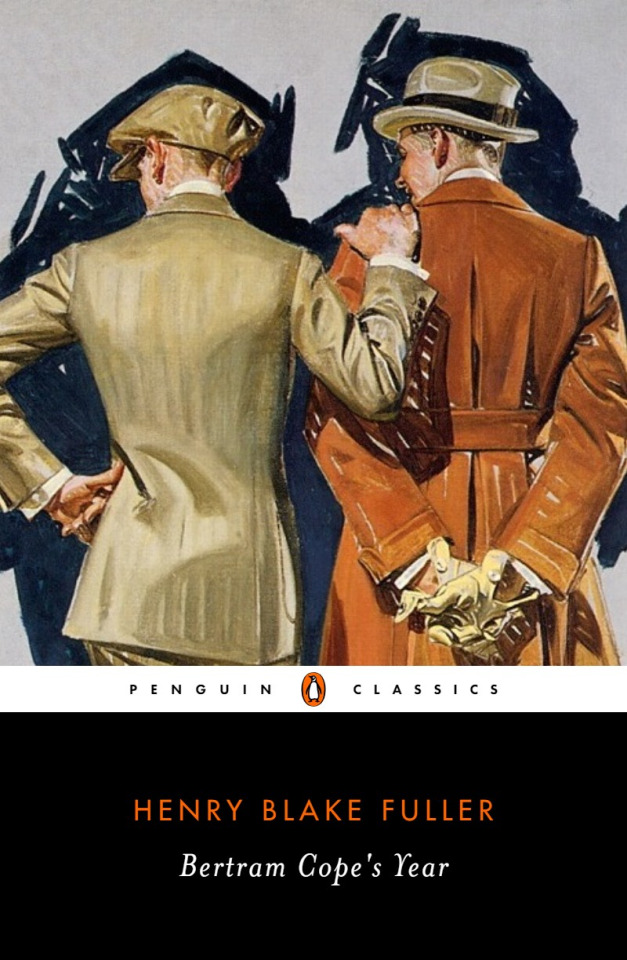


More Penguin Classics covers for old gay novels.
(Part 1)
#book covers#penguin classics#penguin covers#the last of the wine#a single man#bertram cope's year#maurice#wingmen#mary renault#christopher isherwood#henry blake fuller#e. m. forster#ensan case#gay literature#lgbt literature#gay#mlm#books#booklr
229 notes
·
View notes
Text
“In the dream there had always been a pause in which he had looked up and said, “Next time you go away, I’m going with you”; and Ralph, who hadn’t had a first name in those days, had looked down all the same and answered, “Of course.””
#I think this is my favorite quote from the book#It was 'I should have had to come back' before#but now it's this#Mary Renault#The charioteer
20 notes
·
View notes